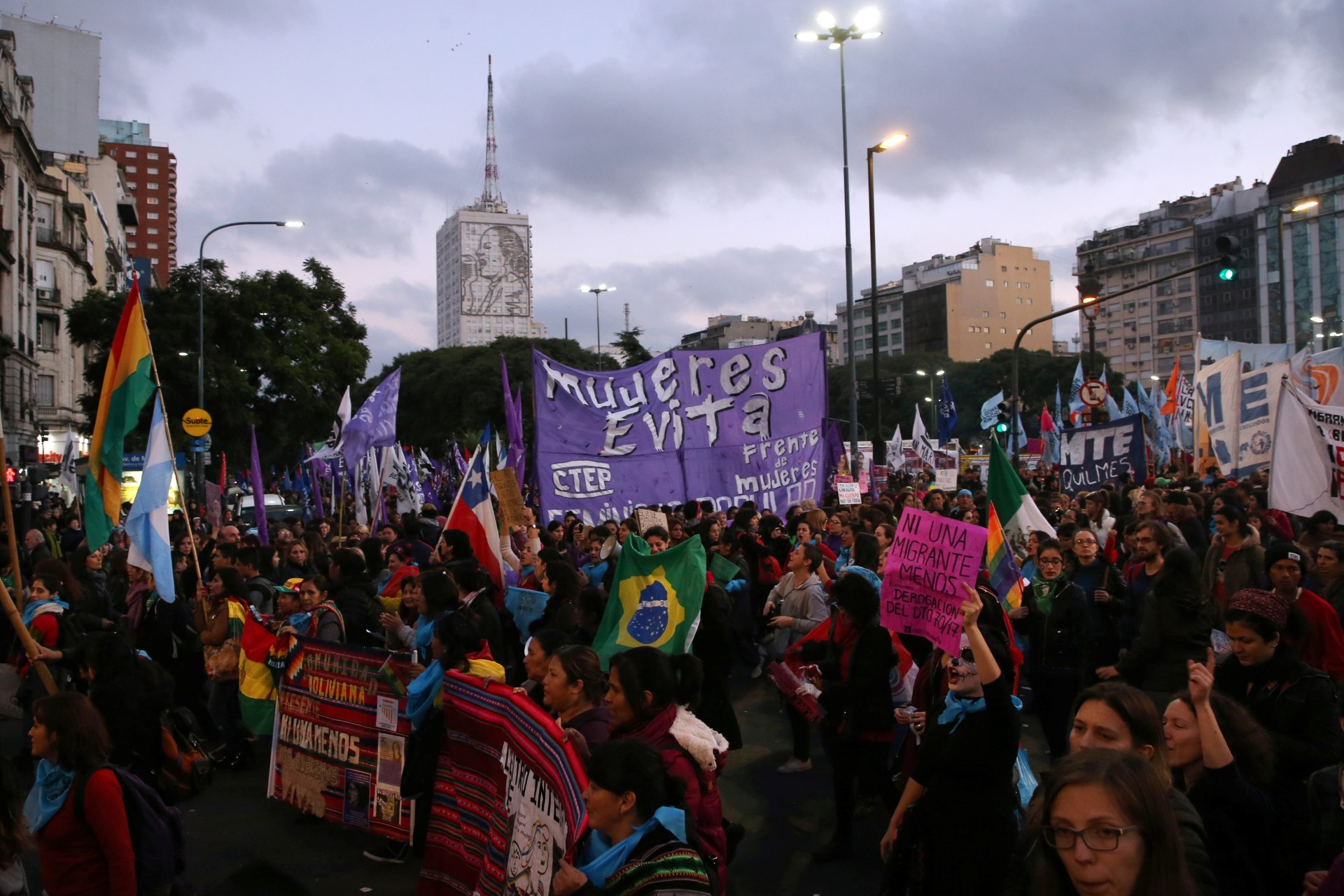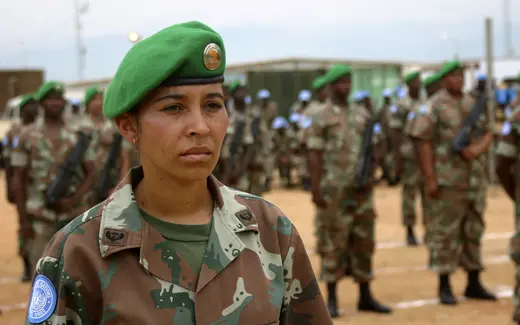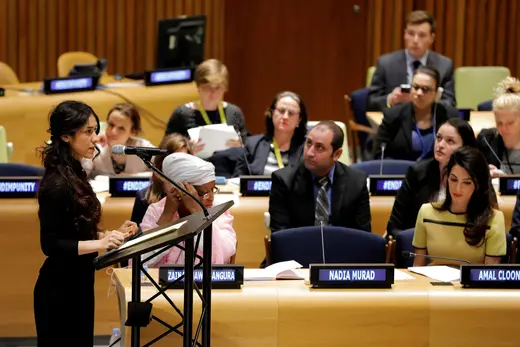Eliminating Violence Against Women
This week marks the United Nations’ Sixteen Days of Activism Against Gender-Based Violence, when the United Nations, partner organizations, and governments around the world galvanize attention to gender-based violence starting on the International Day for the Elimination of Violence Against Women (November 25). Learn more about how violence against women relates to U.S. foreign policy interests, including stability and prosperity, through these six publications from the Women and Foreign Policy program.

By experts and staff
- Published
By
- Rachel B. VogelsteinDouglas Dillon Senior Fellow and Director of the Women and Foreign Policy Program
- Guest Blogger for Women Around the World
This post is co-authored by Anne Connell, assistant director of the Women and Foreign Policy program at the Council on Foreign Relations.
An October 2017 CFR Discussion Paper highlights a growing body of research that suggests that sexual violence in conflict is not only a grave human rights violation, but a significant security threat. Authors Jamille Bigio, adjunct senior fellow, and Rachel Vogelstein, Douglas Dillon senior fellow and director of the Women and Foreign Policy program, argue that wartime rape fuels displacement, weakens governance, and destabilizes communities, thereby inhibiting postconflict reconciliation and imperiling long-term stability.

In an op-ed in Fortune, Rachel Vogelstein and Jody Heymann, dean of the UCLA Fielding School of Public Health, present new research about the 424 million working-age women around the world live who in countries with no legal protections against sexual harassment at work. In recent weeks, millions of women shared their experiences with sexual harassment in the workplace, from Hollywood to Silicon Valley to state and federal legislatures, using the hashtag #MeToo. Women recounted instances when they were subjected to abuses ranging from demeaning comments to sexual assault, and denied promotions or professional opportunities when they objected to unwanted advances. Vogelsetin and Heymann argue that such “sexual harassment and other discriminatory behavior that keeps women out of the workplace undermines economic growth.”
In a recent CFR general meeting, the Women and Foreign Policy program and Center for Preventive Action hosted a conversation with Kristen Silverberg, managing director of the Institute of International Finance and former Assistant Secretary of State for International Organization Affairs, Mark P. Lagon, former U.S. Ambassador-at-Large on Trafficking in Persons, and Nadia Murad Basee Taha, Yazidi human rights activist and UN Goodwill Ambassador. Murad shared first-hand accounts of the Islamic State’s use of sexual violence as a tactic of terror and form of genocide against the Yazidi religious minority, 3,000 of whom remain in captivity in Iraq and Syria.

Estimates suggest that gender-based violence can cost 1 to 2 percent of countries’ GDP. But under the Millennium Development Goal (MDG) framework that preceded the recently adopted Sustainable Development Goals (SDGs), funding from major donor countries to advance gender equality was largely confined to the areas of maternal health and primary education, to the exclusion of priorities such as violence prevention. To foster stability and prosperity around the world, “the United States should lead the effort to increase international financing for gender equality,” writes Rachel Vogelstein.
In a guest blog post on Women Around the World, Ambassador Cathy Russell, former U.S. Ambassador-at-Large for Global Women’s Issues and member of the board of directors of Women for Women International, highlights the scourge of sexual violence in conflicts around the world. Russell presents evidence from the Democratic Republic of Congo, a country that has been plagued by civil conflict and war for decades, that suggests that up to 40 percent of women have experienced sexual violence, and shares the personal story of one Congolese woman who was kidnapped by rebels and forced into a year of sexual slavery.

A landmark CFR Interactive Report traces the role of women in peace processes around the world and tracks which peace agreements have referenced critical issues such as gender-based violence. The interactive features the first-ever index measuring women’s participation in peace talks, and highlights case studies and policy analysis exploring women’s roles in prior and ongoing conflicts. “From Kabul to Kinshasa, women continue to be marginalized and excluded from peace and security processes, despite facing unique threats to their safety and well-being,” the report finds.